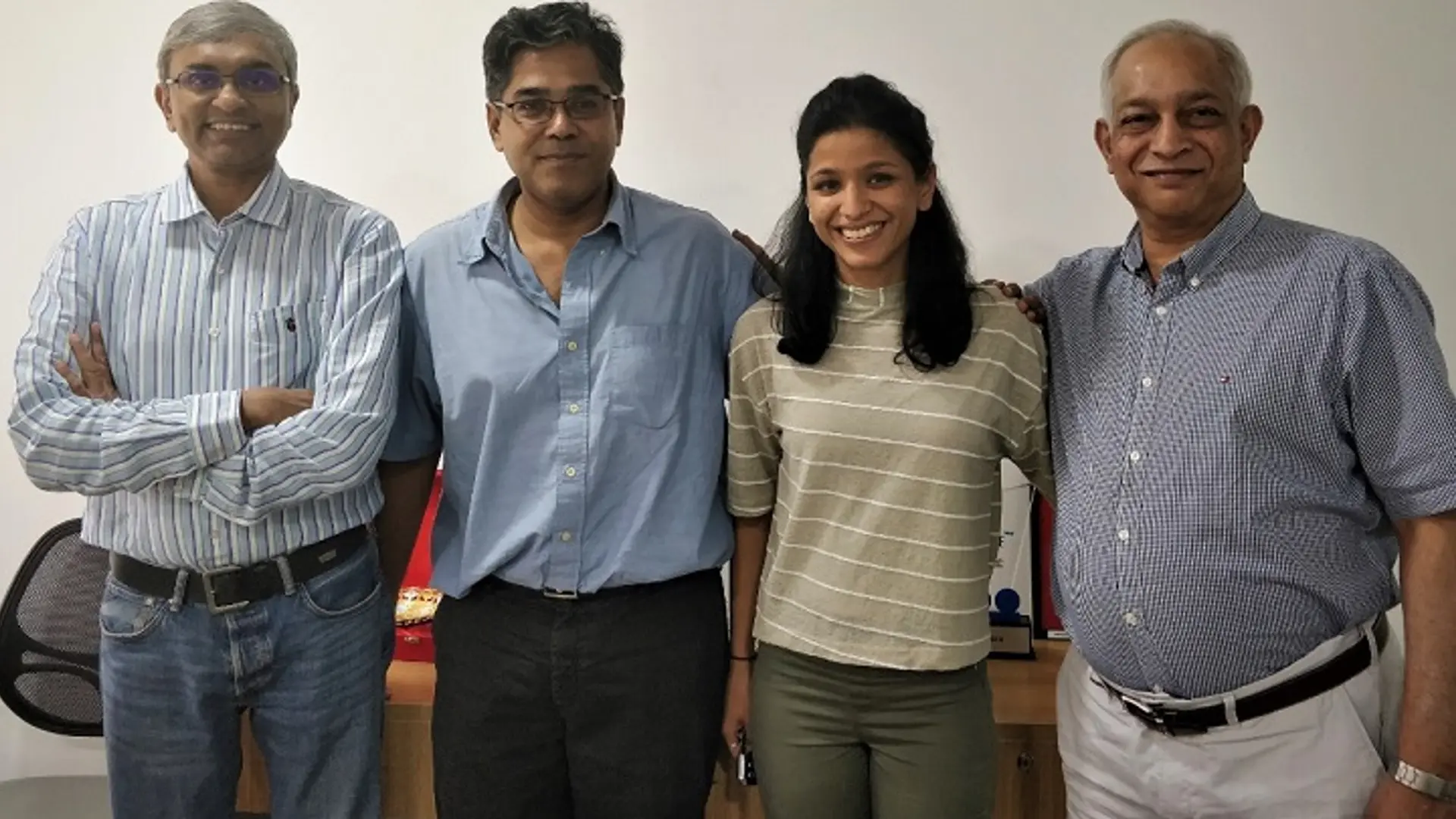WATCH: How IIT Madras-incubated QNu Labs uses the power of light to protect data over the internet
We live in an age where cybersecurity is a real threat, with even mathematically generated keys being broken by supercomputers. What then is the solution against hacking? QNu Labs, a Bengaluru-based startup, provides solutions for making encryption hack-proof and future-proof.
If you are a Star Trek fan, then you will know the meaning of “to boldly go where no man has gone before”. The thrill of discovering the unknown, thinking out of the box, or addressing a pain point that no one has done before is what encourages intrepid entrepreneurs to start up.
Look at the internet, it is an ever-expanding universe in itself. Taking the Star Trek reference a little further, unlike the Federation, not everything from the internet comes in peace. While there are security solutions to protect information, once the information hits the network, it is as vulnerable as the space it travels through. The crowded information superhighway of today is susceptible to breaches because the current standards of encryption – no matter how stringent – are inadequate.
Today’s Black Hat hackers use super computers or the power of a network of computers by hacking in to millions of computers to use their compute power to break in and steal sensitive information.
Watch this video to get a detailed idea of what QNu Labs does
This is where QNu Labs, a startup from Bengaluru, steps up to the challenge. It uses quantum cryptography to obfuscate data and provides keys to fight hackers.
“Quantum cryptography uses photon light, or Qbits, to ensure that the data is protected and that the keys are constantly changing for any attacker to open a piece of information,” explains Sunil Gupta, Co-Founder and CEO of QNu Labs.
This means that the current mathematical keys used in securing data are challenged by this new way of securing information: neither the person sending the data, nor the recipient have any ideas as to what the key is. In fact, the key is decided by the key management system only when it knows the party is ready to receive it.

(L-R): Sunil Gupta, Dr Anil Prabhakar, Prithvi Kini and Mark Mathias
Started in IIT Madras in 2016, but now based in Bengaluru, QNu Labs was founded by Srinivasa Rao Aluri, Sunil Gupta, Mark Mathias and Dr Anil Prabhakar. The founders are all scientists and technocrats who have more than three decades each of corporate experience and knew each other through common friends.
The story QNu Labs began when, in 2015, the Government of India asked these technology stalwarts to build a new level of data security using photon lights. The company did not want to divulge its investment numbers. But the founders did share that they spent the first two years just building the technology. Now it has five potential clients and a business revenue pipeline of Rs 12 crore.
To understand what QNu Labs does, it is imperative to understand the difference between quantum cryptography and quantum computing.
Essentially, quantum cryptography is based on the fundamental and unchanging principles of quantum mechanics. In fact, quantum cryptography rests on two pillars of twentieth-century quantum mechanics: the Heisenberg Uncertainty principle and the principle of photon polarisation.
According the Heisenberg Uncertainty principle, it is not possible to measure the quantum state of any system without disturbing that system. Thus, the polarisation of a photon or light particle can only be known at the point when it is measured.
Simply put, the photons will not let the hacker duplicate the information because it is in quantum bits. So a hacker would have to duplicate information for every Qbit, and that is considered a physically impossible task.
There are several detailed definitions of quantum computing available. A simple one from Microsoft defines quantum computing as a branch of computing science that applies the properties of quantum physics to process information.
Operating with nanoscale components at temperatures colder than intergalactic space, quantum computing has the potential to solve some of the world’s toughest challenges.
A fully functional quantum computer would take only days or hours to solve problems that would potentially take billions of years using today’s computers.
What’s more, quantum computers will enable new discoveries in the areas of healthcare, energy, environmental systems, smart materials, and more.
Unfortunately, the principles of quantum computing are being used to steal information too.
“Today most attacks are state-sponsored and if you look at the future, there are bots that harvest now and encrypt later. The attacks are getting better as we enter the new age of computing,” adds Sunil.
QNu labs has a solution for making encryption hack-proof and future-proof by using the principles of quantum physics.
With its Quantum Key Distribution and Quantum Random Number Generator, QNu has ensured that data security has now entered the age of quantum safety.
The product sits in a hardware box and is connected to network servers or routers. It is sold to corporates or any large organisation wanting to protect its information.
Also read: How elections are manipulated by BOTS
According to Gartner, the worldwide spending on information security products and services will reach more than $114 billion in 2018, an increase of 12.4 percent from last year. In 2019, the market is forecast to grow 8.7 percent to $124 billion.
The European Union has just spent $1 billion on quantum cryptography to develop a new and secure communications system. So why shouldn’t India bet big on this new way of securing information? And a startup is leading the way.
Globally, companies in this space have raised millions of dollars. Rigetti, from the US, has raised $120 million. Others in this space include IonQ and 1QBit.
QNu has huge potential, having just graduated from the fourth batch of the Cisco Launchpad accelerator. With Cisco’s help, it may go global after all. And just like Star Trek they must go where no one else has.
Also read:



